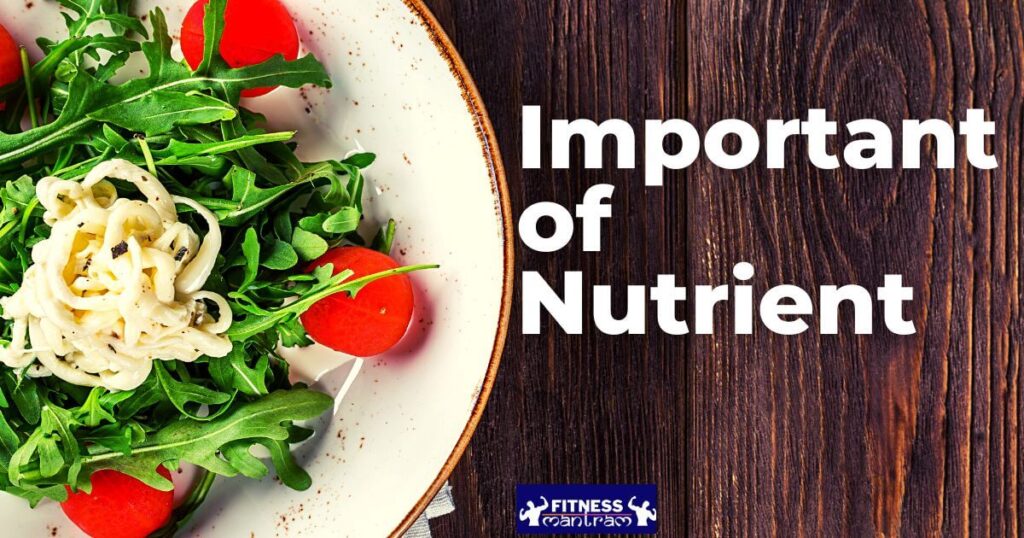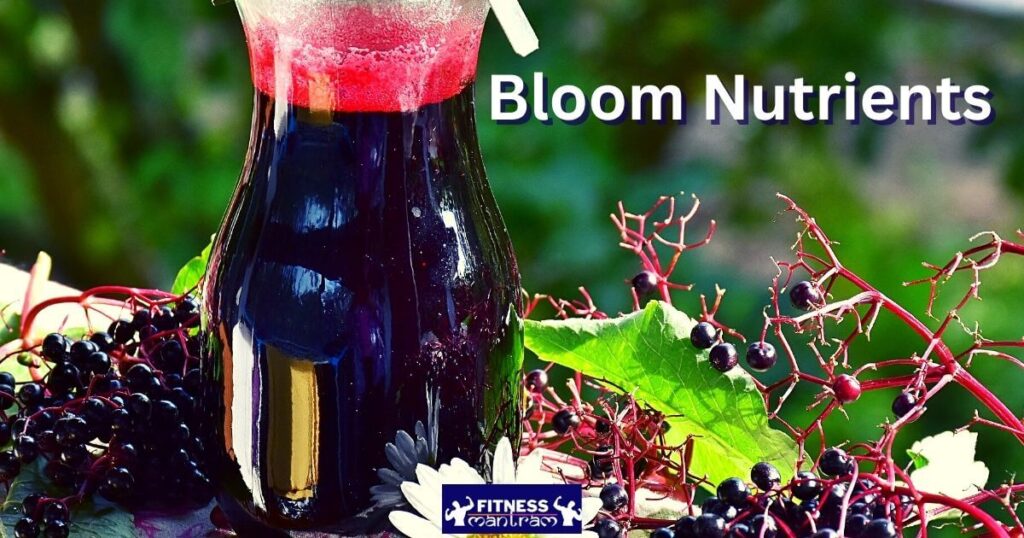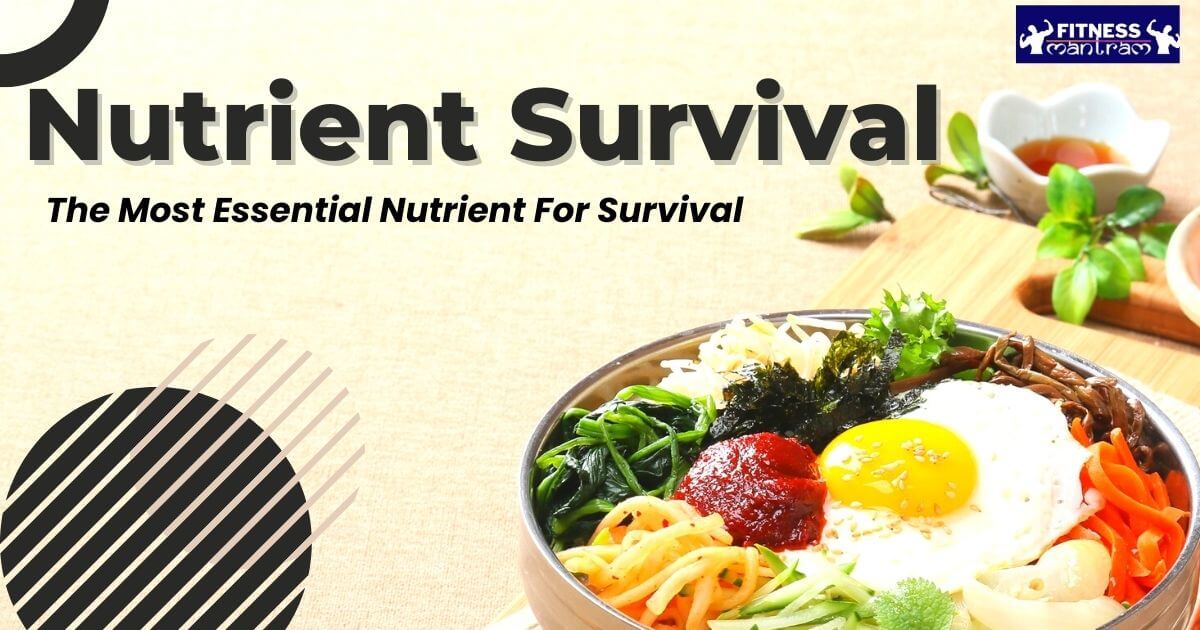Nutrient Survival is the ability of a species or population to survive in an environment with limited amounts of essential nutrients. This is important in ecosystems where resources are scarce, or when a species is threatened by environmental change, such as climate change. In these cases, a species or population may need to adapt to survive in the new environment. Adaptation can include behavioural, physiological, and genetic changes that allow a species to better utilize scarce resources. For example, some species may become more efficient for agers, resulting in increased nutrient intake. Other species may exhibit physiological changes that allow them to use different nutrients more efficiently. Genetic changes can also play a role in nutrient survival, allowing a species to adapt to a new environment over time.
Hence, we can say that Nutrient survival is the ability of an organism to survive in an environment with limited nutrients. It is an important factor in the evolutionary process, as organisms that are able to survive in nutrient-poor environments can better adapt to changing conditions. Certain organisms have evolved specialized strategies to survive in nutrient-poor environments, such as the use of symbiotic relationships with other organisms, or the ability to tolerate extreme conditions.
Nutrient Survival : Important of Nutrient

The Most Essential Nutrient for Survival are those substances that provide the body with the necessary energy and materials it needs to function properly. Without enough of certain nutrients, the body may not be able to perform all of its essential functions, leading to various health problems. For example, a deficiency in nutrients such as iron or vitamin C can cause anaemia or scurvy, respectively. It is important to consume a varied and balanced diet to ensure that the body is getting all of the nutrients it needs to survive and thrive.
Discover the Lost Superfoods that could save your life during the next crisis
Nutrient Deficiency
Nutrient deficiencies occur when the body does not receive enough of the essential vitamins, minerals, and other nutrients it needs to function properly. Symptoms of nutrient deficiencies can include fatigue, poor immune function, digestive issues, skin problems, and more. Treatment typically involves dietary changes, supplementation, and lifestyle modifications.
Nutrient Density Definition
Nutrient density is a measure of the amount of essential nutrients (such as vitamins, minerals, and antioxidants) in a given amount of food. It is usually expressed as a ratio of the amount of nutrients to the number of calories in the food. Foods with a high nutrient density are considered to be more nutritious than those with a low nutrient density.
High Nutrient Survival Foods / Nutrient Rich Foods
Nutrient-dense contain a lot of vitamins, minerals, and other necessary nutrients, i.e. foods without excessive sodium, added sugars, or saturated fat, are considered as High Nutrient Foods. Thus the dairy foods, fish, seafood, whole grains, unprocessed lean meat, skinless poultry, nuts, and legumes are Nutrient rich foods.

Examples of nutrient-rich foods include: -Fruits and vegetables, -Whole grains, -Legumes, -Nuts and seeds, -Fish and seafood, -Lean meats and poultry, -Low-fat dairy products, -Eggs, -Healthy fats, such as olive oil and avocado.
Nutrient Solution:
A nutrient solution is a liquid mixture that provides plants with the necessary nutrients for growth. It is commonly used in hydroponic systems, where plants are grown in a soil-less environment and rely on a nutrient solution for all of their nutrient needs. The nutrient solution is typically made up of a combination of essential minerals, such as nitrogen, phosphorus, and potassium, as well as trace elements that are necessary for plant growth. The specific composition of a nutrient solution will depend on the type of plants being grown and their specific nutrient requirements.
Bloom Nutrients:
Bloom nutrients are fertilizers specifically formulated to support the flowering and fruiting stages of a plant’s life cycle. They typically contain a higher ratio of phosphorus and potassium, which are essential nutrients for flowering and fruiting, and may also contain micronutrients that are important for the overall health and development of the plant.
During the flowering stage, plants require a different balance of nutrients than they do during the vegetative stage of growth. Bloom nutrients are designed to provide the optimal balance of nutrients for flowering and fruiting, helping to promote healthy and abundant blooms and fruit.

It is important to carefully follow the manufacturer’s instructions when using bloom nutrients, as over-fertilization can lead to nutrient imbalances and other problems. It is also a good idea to regularly test the nutrient solution to ensure that it is providing the plants with the proper balance of nutrients.
Nutrients Cannabis:
Cannabis plants have specific nutrient requirements during different stages of their growth cycle. During the vegetative stage, cannabis plants require a balanced mix of nutrients, including nitrogen, phosphorus, potassium, and trace elements like iron, zinc, and manganese. Nitrogen is important for leaf and stem growth, while phosphorus is essential for root development and flower production. Potassium helps to regulate water balance and aids in the metabolism of carbohydrates.
During the flowering stage, cannabis plants require a slightly different balance of nutrients, with an increased emphasis on phosphorus and potassium. These nutrients are essential for the production of flowers and fruit, and a deficiency can result in poor quality and yield.
It is important to use a nutrient solution specifically formulated for cannabis, as the plant has specific requirements that may not be met by a general-purpose nutrient mix. It is also important to carefully follow the manufacturer’s instructions and regularly test the nutrient solution to ensure that the plants are receiving the proper balance of nutrients. Over-fertilization can lead to nutrient imbalances and other problems, so it is important to monitor the nutrient levels and adjust as needed.
What 10 food makes you live longest?
There is no single food that can guarantee a long life, but there are certain foods that have been shown to have health benefits and may be associated with a longer lifespan. Here are ten foods that may contribute to a long and healthy life:
- Leafy green vegetables: These are high in nutrients and low in calories, making them a great choice for maintaining overall health.
- Nuts and seeds: These are high in healthy fats, protein, and fiber, and may help to lower the risk of heart disease and other chronic conditions.
- Berries: These are high in antioxidants and other nutrients that may help to protect against diseases such as cancer and heart disease.
- Whole grains: These are a good source of fiber, which can help to lower cholesterol levels and reduce the risk of heart disease.
- Fish: Many types of fish are high in omega-3 fatty acids, which may help to lower the risk of heart disease and other health problems.
- Legumes: These include beans, lentils, and peas, and are high in protein, fiber, and other nutrients.
- Olive oil: This is a healthy source of fat that has been shown to have numerous health benefits, including a reduced risk of heart disease.
- Turmeric: This spice is high in antioxidants and has been shown to have anti-inflammatory properties.
- Garlic: This has been shown to have a number of health benefits, including a reduced risk of heart disease and certain types of cancer.
- Dark chocolate: This is high in antioxidants and has been shown to have a number of health benefits, including a reduced risk of heart disease and improved brain function.
It’s important to note that the key to a long and healthy life is not any one food, but rather a varied and balanced diet that includes a variety of nutritious foods.
High Nutrient Foods For Weight Loss
There are many foods that are high in nutrients and can be helpful for weight loss. Given below is the list of some high nutrient food which are good for weight loss:
Learn More: keto diet plan for weight loss
Fruits And Vegetables: Important vitamins, minerals, and plant chemicals are found in fruits and vegetables. They also have fiber in them. There are numerous methods for preparing, cooking, and serving fruits and vegetables. A diet high in fruit and vegetables can help in protecting against cancer growth, diabetes and coronary illness. These are high in fiber, vitamins, and minerals, and low in calories. Some good options include leafy greens, berries, apples, and citrus fruits.
Lean Proteins: Eggs are a super-convenient and versatile source of lean protein that is also more affordable than other options. The USDA defines a lean meat protein as one that contains less than 4.5 grams or less of saturated fat per portion (100 grams). These can help you feel full and satisfied, and can include options like chicken, fish, tofu, and beans.
Whole Grains: Whole grains have the entire whole grain bit, which incorporates the wheat, microbe, and endosperm. Whole-wheat flour and bulgur are two examples of whole grains. Consuming whole grains is one of the healthiest ways to enjoy them. Utilize less-processed options like wheat berries, barley, spelt, freekeh (young spelt), farro, amaranth, and, of course, hearty brown rice instead of ground grains and flours. These are a good source of fiber, which can help keep you feeling full and satisfied. Examples include quinoa, oats, and brown rice.
Nuts and Seeds: Plant-based proteins like nuts and seeds are excellent sources of healthy fats, fiber, vitamins, proteins, and minerals. Nuts and seeds contain a lot of nutrients in small packages.
The Five Healthiest Nuts Are Listed Below.
- Pistachios.
- Pecans.
- Almonds.
- Peanuts.
- Walnuts
The Best Seeds For Your Diet.
- Seeds of chia
- Pumpkin seeds
- Pods of sunflowers.
- Seeds of hemp
- Seeds of sesame.
These are high in healthy fats and protein, and can be a satisfying snack. Just be sure to watch portion sizes, as they are high in calories.
Avocado: This is a high-fat food, but it is mostly monounsaturated fat, which is a healthy type of fat. It is also high in fiber and can be a satisfying addition to a meal. Avocado is a fruit that is native to Central and South America. It is a popular ingredient in many dishes, including guacamole and salads, because of its creamy texture and rich, nutty flavor. Avocado is high in healthy fats, fiber, and nutrients, and is considered a superfood because of its many health benefits. Some of the health benefits of avocado include aiding in weight loss, improving heart health, and helping to prevent certain types of cancer. It is also a good source of vitamins and minerals, including potassium, vitamin E, and vitamin K.
Remember to focus on a balanced diet that includes a variety of nutrient-dense foods, and to pay attention to portion sizes. It can also be helpful to consult with a healthcare professional or a registered dietitian for personalized advice.
Click Here : 126 Forgotten Survival Foods That You Should Add to Your Stockpile
High Nutrient Foods For Weight Gain
There are many nutrient-rich foods that can help you gain weight when consumed in sufficient amounts. Some good options include:
- Lean meats: Chicken, turkey, beef, pork, and lamb are all high in protein and can help you build muscle mass.
- Fish: Fish like salmon, tuna, and sardines are rich in protein and omega-3 fatty acids, which are important for muscle growth and overall health.
- Nuts and nut butters: Nuts and nut butters are high in healthy fats and protein, making them a good choice for weight gain.
- Whole grains: Whole grains like oats, quinoa, and brown rice are rich in fiber and other nutrients that can help you gain weight.
- Fruits and vegetables: Fruits and vegetables may not be as calorie-dense as some other options, but they are still important for overall health and can be a good source of weight-gain when paired with other high-calorie foods.
- Dairy products: Milk, cheese, and yogurt are all high in protein and can help you gain weight.
It’s important to remember that in order to gain weight, you need to consume more calories than your body burns. So, in addition to eating nutrient-rich foods, it’s important to pay attention to portion sizes and make sure you’re getting enough calories to support weight gain.
Summary : The ability of an organism to obtain and utilize essential nutrients in order to maintain and support its growth, development, and overall health. Adequate intake of essential nutrients such as vitamins, minerals, proteins, carbohydrates, and fats is necessary for the proper functioning of the body and the maintenance of good health. However, the specific requirements for each nutrient may vary depending on an individual’s age, gender, level of physical activity, and other factors. It is important to consume a balanced diet that meets the body’s nutritional needs in order to support survival and overall well-being.
FAQ
What Is Nutrient Survival?
A: Nutrient survival is the ability of an organism to survive in an environment with limited nutrients. This can be achieved through a variety of strategies, such as increasing nutrient uptake efficiency, storing nutrients, and using alternative sources of energy.
What Is an Essential Nutrient?
A: An essential nutrient is a nutrient that the body cannot produce on its own and must be obtained from food sources. Essential nutrients include vitamins, minerals, fatty acids, and amino acids. These nutrients are necessary for the body to function properly and maintain health.
What Is Nutrient Density definition?
Nutrient density is a measure of the amount of essential nutrients in a given amount of food. It is calculated by dividing the amount of a nutrient by the total calories in the food. Foods with a higher nutrient density provide more nutrients per calorie than those with a lower nutrient density.
Which Statement Best Describes Nutrient Density?
Nutrient density is a measure of the number of essential vitamins, minerals, and other nutrients in a food relative to its calorie content
What Are Nutrient Dense Foods?
Nutrient dense foods are foods that are high in essential vitamins, minerals, and other nutrients while being low in calories. Examples of nutrient dense foods include fruits, vegetables, legumes, nuts, seeds, whole grains, lean proteins, and healthy fats.
Is Cholesterol An Essential Nutrient?
A: Yes, cholesterol is an essential nutrient. It is a type of fat that is found in the body and is necessary for the production of hormones, cell membranes, and vitamin D.
Read More :
- The Myths About Vitamins and Supplements
- Best Nutrition For Weight Loss
- The Growing Epidemic of Obesity
- Low Carb Dinner Ideas For Family
- Importance of A Healthy Diet and Exercise
Disclaimer: The details & information given here in this article is based on information as available on other published site on internet. Do take medical advice before adopting it. Fitness Mantram Does Not Confirm It. This site contains affiliate links. If you choose to make a purchase after clicking a link the author/owner/creator may receive a commission at no ADDITIONAL cost to you. Thank you for your support!

1 thought on “Nutrient Survival: The Most Essential Nutrient For Survival”